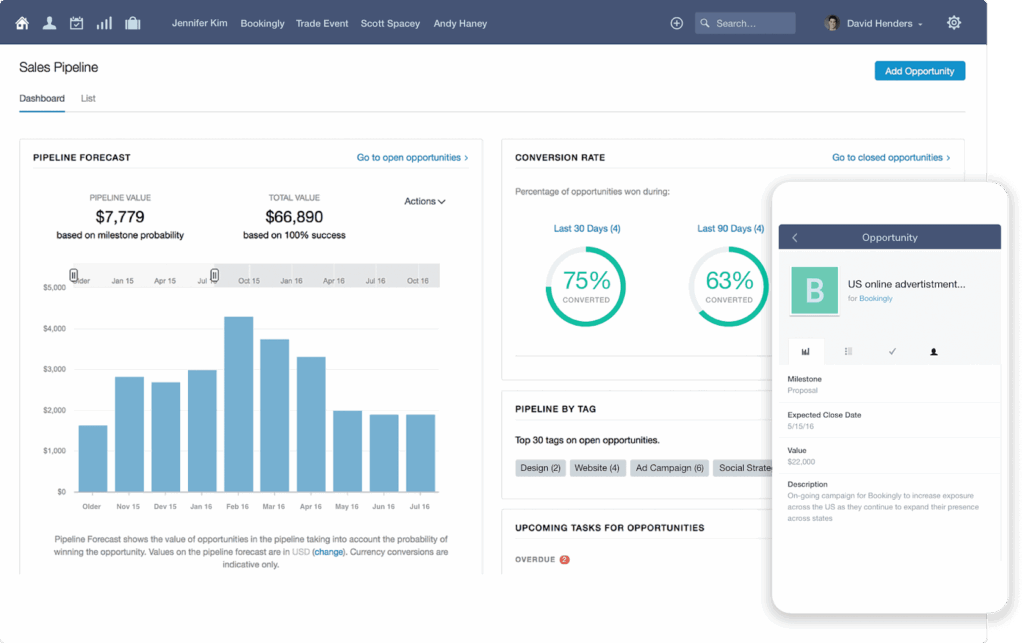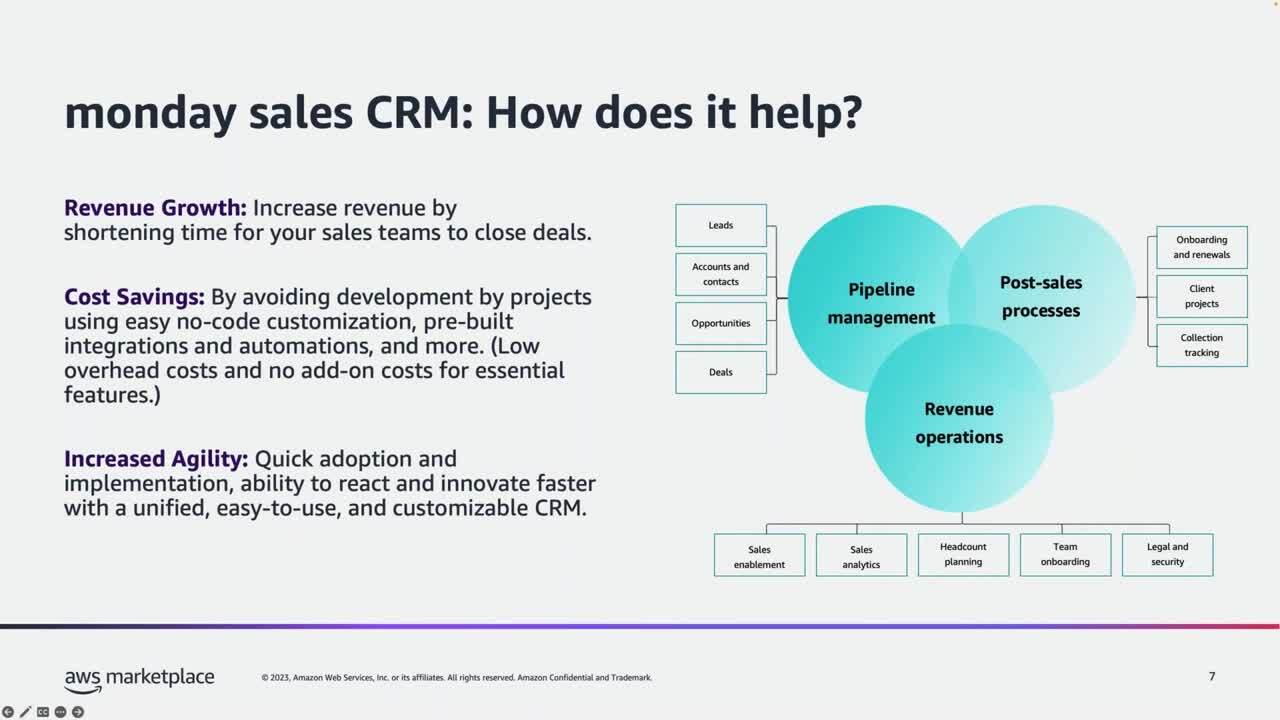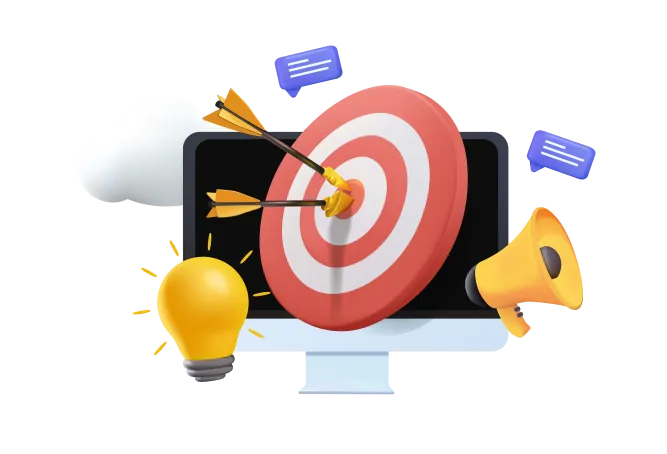Level Up Your Podcast: The Ultimate CRM Guide for Small Podcasters

The Power of a CRM for Podcasters: Beyond Just Contact Management
Running a podcast is more than just recording and hitting the upload button. It’s a business, and like any business, it thrives on relationships. That’s where a Customer Relationship Management (CRM) system comes in. You might think of CRMs as tools for big corporations, but they’re increasingly essential for small podcasters too. They’re not just about keeping track of contacts; they’re about building, nurturing, and monetizing your audience. Think of it as your central hub for everything podcast-related: guest management, listener interaction, sponsorship tracking, and revenue generation. Without a CRM, you’re likely juggling spreadsheets, email chains, and scattered notes, which can quickly become overwhelming.
This guide will walk you through why a CRM is crucial for small podcasters, the key features to look for, and, most importantly, the best CRM options available to help you grow your podcast into a thriving success. Get ready to streamline your workflow, connect with your audience on a deeper level, and ultimately, boost your podcast’s impact.
Why Small Podcasters Need a CRM
The podcasting landscape is competitive. Standing out requires more than just great content; it demands strategic audience engagement and efficient operations. A CRM empowers you to do both. Let’s dive into the specific benefits:
- Organized Contact Management: No more lost emails or forgotten connections. A CRM keeps all your guest details, listener interactions, and sponsor contacts in one centralized location.
- Streamlined Communication: Easily send personalized emails, newsletters, and updates to different segments of your audience. This saves time and ensures your messages resonate.
- Improved Listener Engagement: Track listener interactions, feedback, and preferences. Use this data to tailor your content and build stronger relationships.
- Efficient Guest Management: Manage your guest booking process, track communication, and store important details about each guest in one place.
- Sponsorship Tracking & Management: Keep track of sponsorship deals, deliverables, and payment schedules. This ensures you fulfill your obligations and get paid on time.
- Data-Driven Decisions: Analyze your audience data to understand what’s working and what’s not. This helps you make informed decisions about your content, marketing, and monetization strategies.
- Time Savings: Automate repetitive tasks and free up time to focus on creating great content.
In essence, a CRM acts as the nerve center of your podcasting operation, allowing you to be more organized, efficient, and strategic in your approach.
Key Features to Look for in a Podcast CRM
Not all CRMs are created equal. When choosing a CRM for your podcast, consider these essential features:
Contact Management
This is the foundation. Your CRM should allow you to:
- Store detailed contact information, including names, email addresses, social media profiles, and any other relevant details.
- Segment your audience based on demographics, interests, and engagement levels.
- Tag contacts to easily identify and categorize them (e.g., “potential sponsor,” “loyal listener,” “guest”).
Email Marketing & Automation
Email is a powerful tool for podcasters. Your CRM should enable you to:
- Send targeted email campaigns to specific segments of your audience.
- Automate email sequences, such as welcome emails, onboarding sequences for new listeners, and follow-up emails after guest appearances.
- Track email open rates, click-through rates, and other metrics to measure the effectiveness of your campaigns.
Guest Management
If you interview guests, this is crucial. Look for a CRM that allows you to:
- Track guest contact information, availability, and preferences.
- Manage the booking process, including scheduling, communication, and pre-interview preparation.
- Store guest bios, headshots, and other relevant information.
Sponsorship Tracking
Monetizing your podcast often involves sponsorships. Your CRM should help you:
- Track sponsorship deals, including deliverables, deadlines, and payment schedules.
- Manage communication with sponsors.
- Generate reports on sponsorship performance.
Reporting & Analytics
Data is your friend. Your CRM should provide:
- Insights into your audience demographics, engagement levels, and listening habits.
- Metrics on email campaign performance.
- Reports on sponsorship revenue and performance.
Integrations
The ability to connect with other tools is vital. Look for integrations with:
- Your podcast hosting platform (e.g., Libsyn, Buzzsprout).
- Your email marketing service (e.g., Mailchimp, ConvertKit).
- Social media platforms.
- Payment processors (e.g., PayPal, Stripe).
Ease of Use
A CRM is only useful if you actually use it. Choose a system that is intuitive and easy to navigate, even if you’re not tech-savvy. A clean user interface and helpful tutorials are a big plus.
Top CRM Options for Small Podcasters
Now, let’s explore some of the best CRM options specifically tailored for podcasters. We’ll consider their features, pricing, and ideal use cases.
1. HubSpot CRM
Overview: HubSpot is a popular, powerful, and surprisingly accessible CRM platform. It offers a free version that’s perfect for getting started, and its paid plans scale well as your podcast grows. HubSpot is known for its user-friendly interface and comprehensive features.
Key Features for Podcasters:
- Free CRM: A robust free version includes contact management, email marketing, and basic automation.
- Contact Management: Detailed contact profiles, segmentation, and tagging.
- Email Marketing: Create and send email campaigns, automate sequences, and track performance.
- Sales Tools: Manage potential sponsors and track deals.
- Integrations: Integrates with a wide range of tools, including email marketing services, social media platforms, and more.
- Reporting & Analytics: Get insights into your audience and email campaign performance.
Pricing: HubSpot offers a free version with generous features. Paid plans start at a reasonable price and scale up based on your needs.
Ideal For: Podcasters of all sizes, especially those just starting out who want a powerful, free CRM. It’s also great for podcasters who anticipate growth and want a CRM that can scale with them.
2. Pipedrive
Overview: Pipedrive is a sales-focused CRM known for its visual pipeline management. It’s excellent for managing leads and tracking sales opportunities, making it a good choice for podcasters who actively pursue sponsorships or sell merchandise.
Key Features for Podcasters:
- Visual Pipeline: Easily track leads and deals through different stages of the sales process.
- Contact Management: Organize contacts and track interactions.
- Email Integration: Integrate with your email provider for seamless communication.
- Automation: Automate repetitive tasks, such as sending follow-up emails.
- Reporting: Track sales performance and identify areas for improvement.
Pricing: Pipedrive offers a range of paid plans based on features and the number of users.
Ideal For: Podcasters who are heavily focused on sales and sponsorships. It’s perfect for those who want a visual way to manage their sales pipeline.
3. Zoho CRM
Overview: Zoho CRM is a feature-rich and customizable CRM platform that caters to businesses of all sizes. It offers a free plan for small businesses and a range of paid plans with advanced features.
Key Features for Podcasters:
- Contact Management: Manage contacts and track interactions.
- Email Marketing: Send email campaigns and automate sequences.
- Sales Automation: Automate sales processes, such as lead nurturing and deal tracking.
- Workflow Automation: Automate tasks based on specific triggers.
- Reporting & Analytics: Gain insights into your audience and sales performance.
- Customization: Customize the platform to fit your specific needs.
Pricing: Zoho CRM offers a free plan for up to three users, as well as a range of paid plans.
Ideal For: Podcasters who need a highly customizable CRM with a lot of features. It’s a good choice for those who want to automate a lot of their processes.
4. Agile CRM
Overview: Agile CRM is a user-friendly and affordable CRM that’s well-suited for small businesses and startups. It offers a free plan and a range of paid plans with advanced features.
Key Features for Podcasters:
- Contact Management: Manage contacts and track interactions.
- Email Marketing: Send email campaigns and automate sequences.
- Sales Automation: Automate sales processes, such as lead nurturing and deal tracking.
- Helpdesk: Provide customer support and manage support tickets.
- Integrations: Integrates with a wide range of tools.
Pricing: Agile CRM offers a free plan for up to 10 users, as well as a range of paid plans.
Ideal For: Podcasters who need an affordable and easy-to-use CRM with a good balance of features.
5. Monday.com
Overview: Monday.com isn’t strictly a CRM, but it’s a powerful project management and collaboration platform that can be adapted for CRM purposes. Its visual interface and flexibility make it a good choice for podcasters who want to manage all aspects of their podcast in one place.
Key Features for Podcasters (as a CRM):
- Visual Boards: Create visual boards to manage contacts, track deals, and manage guest bookings.
- Contact Management: Track contact information and interactions.
- Automation: Automate tasks based on specific triggers.
- Collaboration: Collaborate with your team on projects.
- Integrations: Integrates with a wide range of tools.
Pricing: Monday.com offers a range of paid plans based on features and the number of users.
Ideal For: Podcasters who want a flexible and visual way to manage all aspects of their podcast, including contacts, guest bookings, and projects.
Choosing the Right CRM for You
The best CRM for you depends on your specific needs and budget. Consider these factors when making your decision:
- Your Podcast’s Size and Stage: A free CRM like HubSpot might be perfect if you’re just starting out. As you grow, you may need a more robust paid plan.
- Your Priorities: If you’re focused on sales and sponsorships, Pipedrive might be a good choice. If you need a highly customizable CRM, Zoho CRM could be a better fit.
- Your Budget: CRM pricing varies widely. Consider your budget and choose a plan that offers the features you need at a price you can afford.
- Ease of Use: Choose a CRM that is easy to learn and use. You don’t want to spend hours trying to figure out how to use the platform.
- Integrations: Make sure the CRM integrates with the other tools you use, such as your email marketing service and podcast hosting platform.
Take some time to research each option and try out the free trials or free versions (if available) before making a decision. This will help you determine which CRM is the best fit for your podcast.
Tips for Implementing a CRM for Your Podcast
Once you’ve chosen a CRM, it’s important to implement it effectively. Here are some tips to help you get started:
- Import Your Existing Contacts: Don’t start from scratch. Import your existing contacts from spreadsheets, email lists, and other sources.
- Segment Your Audience: Divide your audience into different segments based on their interests, engagement levels, and other factors.
- Create a Content Calendar: Plan your content and schedule your email campaigns in advance.
- Automate Your Tasks: Use automation to streamline your workflow and save time.
- Track Your Results: Monitor your email open rates, click-through rates, and other metrics to measure the effectiveness of your campaigns.
- Train Your Team: If you have a team, train them on how to use the CRM.
- Be Consistent: Use the CRM regularly to keep your data up-to-date and build relationships with your audience.
By following these tips, you can maximize the benefits of your CRM and grow your podcast.
Beyond the Basics: Advanced CRM Strategies for Podcasters
Once you have the basics down, consider these advanced strategies to take your CRM usage to the next level:
- Personalized Email Marketing: Use your CRM data to personalize your email messages. Address listeners by name, recommend specific episodes based on their interests, and tailor your offers to their needs.
- Automated Workflows: Create more complex automated workflows to nurture leads, onboard new listeners, and follow up with guests.
- Lead Scoring: Assign scores to your leads based on their engagement and behavior. This helps you prioritize your efforts and focus on the most promising leads.
- Integrate with Your Podcast Hosting Platform: Some CRMs integrate directly with podcast hosting platforms, allowing you to track listener data and engagement metrics within your CRM.
- Use Analytics to Drive Content Creation: Analyze your CRM data to identify the topics and guests that resonate most with your audience. Use this information to inform your content creation strategy.
- Build a Community: Use your CRM to foster a sense of community among your listeners. Create a private Facebook group, host live Q&A sessions, and encourage interaction among your audience.
- Monitor Social Listening: Integrate your CRM with social listening tools to track mentions of your podcast on social media. Respond to comments, engage with your audience, and address any concerns.
The Future of CRM in Podcasting
As podcasting continues to evolve, so will CRM technology. Here are some trends to watch:
- AI-Powered Automation: Expect to see more AI-powered automation features in CRMs, such as automated content recommendations, personalized email subject lines, and intelligent lead scoring.
- Deeper Integrations: CRMs will continue to integrate with other podcasting tools, such as transcription services, social media platforms, and payment processors.
- Enhanced Analytics: CRMs will provide more in-depth analytics, including insights into listener demographics, engagement patterns, and monetization opportunities.
- Focus on Personalization: The emphasis on personalization will continue to grow. CRMs will offer more tools to help podcasters create highly personalized experiences for their listeners.
- Mobile-First Design: More CRMs will offer mobile-friendly interfaces, allowing podcasters to manage their contacts and communicate with their audience on the go.
Staying ahead of the curve with these trends will enable you to leverage the full power of your CRM and stay competitive in the podcasting world.
Conclusion: Embrace the Power of a CRM
In conclusion, a CRM is no longer a luxury for podcasters; it’s a necessity. It’s the key to building a loyal audience, streamlining your operations, and ultimately, achieving podcasting success. By choosing the right CRM and implementing it effectively, you can transform your podcast from a hobby into a thriving business. Take the time to evaluate your needs, explore the options, and find the CRM that’s the perfect fit for you. Your podcast, and your sanity, will thank you for it.
So, take the plunge, embrace the power of a CRM, and watch your podcast soar!




